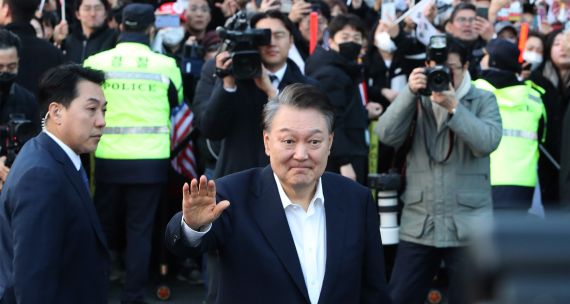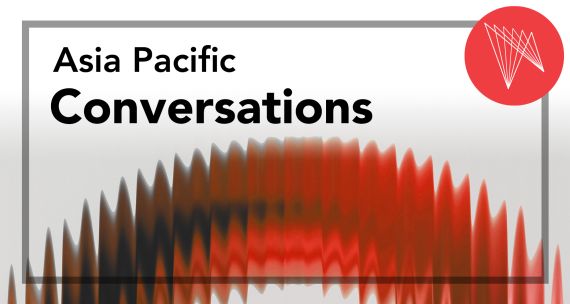With nearly all of the ballots counted in Sunday’s general election in Thailand, it is already clear that voters want to move the country away from the policies pursued by the conservative, pro-military, pro-royalist parties that have led the country since 2014.
Many voters instead lined up behind one of two opposition parties: Move Forward, an upstart progressive party whose support among young voters helped catapult it to the number one slot in Sunday’s contest; and Pheu Thai, a populist party tracing its lineage to two previous prime ministers — a brother and sister — who were ousted by military coups in 2006 and 2014.
As Thailand’s political parties begin the process of coalition-building to form a government, the world is watching to see how a new government will revitalize an economy that is still limping out of the COVID-19 pandemic and how Move Forward, the party currently with the most seats, will bring other parties onside in reforming once untouchable political institutions like the Thai military and the country’s lèse-majesté, or the “royal insult” law.
Results at a glance
Voter turnout on May 14 was just over 75 per cent – technically a record high, but less than one percent higher than in the last election in 2019. Dissatisfaction with outgoing Prime Minister Prayut Chan-o-cha, including his controversial embrace and expansion of lèse-majesté, was a major factor driving that high turnout.
While the number of seats claimed by each party in Thailand’s 500-seat House of Representatives may still change as the final votes get tallied, here is where things currently stand for the top five parties:
Move Forward is expected to win 152 seats. The party's surprisingly strong showing is notable because it is the first major political party to openly champion reform of not only lèse-majesté, but also issues like the current system of military conscription. One expert said that Move Forward opens up a “new battleground in Thai politics” by taking the “game to the next level with institutional reform.”
Pheu Thai is expected to win 141 seats. It campaigned on an economic populist message promising, for example, to provide all Thais aged 16 and older about C$400 (10,000 Baht) in a “digital wallet,” claiming such a program would help spur economic recovery and promote the use of a digital currency backed by the Central Bank of Thailand.
The Bhumjaithai Party sits in third place, with 70 seats. The party has been described as “ideologically fluid” and difficult to place on the ‘left-right’ political spectrum. It is a defender of lèse-majesté, which aligns it with Thailand’s more conservative parties. But the party also spearheaded the legalization of marijuana in 2018, a somewhat controversial stance in Thailand.
Palang Pracharath, PM Prayut’s party before he left to join another conservative party, the United Thai Nation, is expected to pick up only 40 seats, putting it in a distant fourth place.
United Thai Nation, Prayut’s new party, is sitting in fifth place, with 36 seats.
What to watch
Possible coalitions
With no party winning the minimum 376 seats to form a majority government, the leading parties will need to form a coalition. Move Forward and Pheu Thai have already confirmed that they will join forces, along with four smaller parties: Thai Sang Thai, Prachachart, the Thai Liberal Party, and the Thai Fair Party.
However, this coalition’s combined 310 seats will still fall short of the 376 required, leaving it looking for another 66 seats. Move Forward’s leader and prime ministerial candidate, Pita Limjaroenrat, has not ruled out joining with Bhumjaithai (even though the party was part of the previous coalition government), as that party’s 70 seats would be enough to put the pro-democracy coalition over the top. Pita has ruled out partnering with the Palang Pracharath Party or United Thai Nation Party, both firmly aligned with the military and defenders of lèse-majesté.
Pita could also try to secure the support of at least 65 of Thailand’s 250 senators. Senatorial support is important as recent changes in the Thai constitution give the full National Assembly, which includes the Senate, the power to elect the country’s prime minister. But the Thai Senate is a bit of a wild card; all 250 senators were handpicked by the military during Prayut’s tenure and it could be a tall order for a coalition to count on their support. However, senators may feel pressured by the public not to go against the will of the electorate. The final test of whether Pita and his coalition have the votes will come in July, when the House of Representatives and Senate meet for a joint session to select the next prime minister.
Royal reform
Historically, the Thai monarchy has been very popular with the public, especially during the rule of King Bhumibol Adulyadej, who died in 2016. Since Bhumibol’s death, public support for the monarchy has plummeted to historic lows, not least of all because of the unpopularity of the current king, Maha Vajiralongkorn. He is widely regarded as out of touch and unfit to rule due to his controversial lifestyle. Pro-democracy activists have also condemned the use and abuse of lèse-majesté by the military and by Prayut’s government to silence political dissent.
But issues related to reforming the monarchy could be a sticking point between Move Forward and Pheu Thai, which has largely steered clear of the issue to avoid alienating pro-monarchy supporters. Pheu Thai takes the view that the law itself is not a problem, but rather its interpretation and enforcement.
Palang Pracharath and United Thai Nation both remain staunch supporters of the monarchy and have argued that amending the lèse-majesté law could lead to the abolition of the monarchy. These parties also support maintaining the system of military conscription, saying that soldiers play an important role in Thai society, not only by defending the country from foreign threats but also by supporting Thai citizens during natural disasters.
Will a populist economic platform take centre stage?
The new government must put together a plan for rejuvenating the Thai economy, which grew just 2.6 per cent in 2022. As mentioned above, the Pheu Thai Party has advocated for a digital cash handout of C$400 to Thais over the age of 16. But this has not been adopted by the Move Forward Party, and some analysts say the handout could derail the country’s fiscal balance.
Where the two leading parties might find more common ground is on raising the minimum wage – Pheu Thai wants to raise it to C$24 (600 Baht) per day by 2027; Move Forward is proposing a more modest and immediate C$18 (450 Baht) per day bump, with future increases tied to growth and inflation.
Possible legal challenges
Meanwhile, a former member of the Palang Pracharath Party has brought forward allegations that Pita may have broken election laws by owning shares in a media firm. The Thai constitution prohibits the owners and shareholders of media firms from running in national elections. Pita has denied any wrongdoing arguing that he owns the shares only as an executor of his father’s will. The Elections Commission is currently investigating the allegations. If found guilty he may be disqualified as a member of parliament.
Analysts are still taking stock of the political tremors caused by Sunday’s election results, which represent a sea change in voting preferences, particularly among Thai youth, but hint at significant challenges ahead – including assuaging the powerful institutions that have been fixtures of Thai politics for decades.
While on paper the election has shown a clear victory for opposition parties, it is still unclear if Pita will be chosen as the country’s next prime minister, as his coalition still needs the support of members of the military-aligned Senate. Furthermore, legal challenges brought forward by those who oppose him may at best delay his premiership and at worst prevent him from being the country’s next prime minister. The results of the election also reflect changing ideological trends in Thailand, from a once deeply conservative society with great reverence for the royal family, to one that is dominated by progressivism and a clear desire for change.





